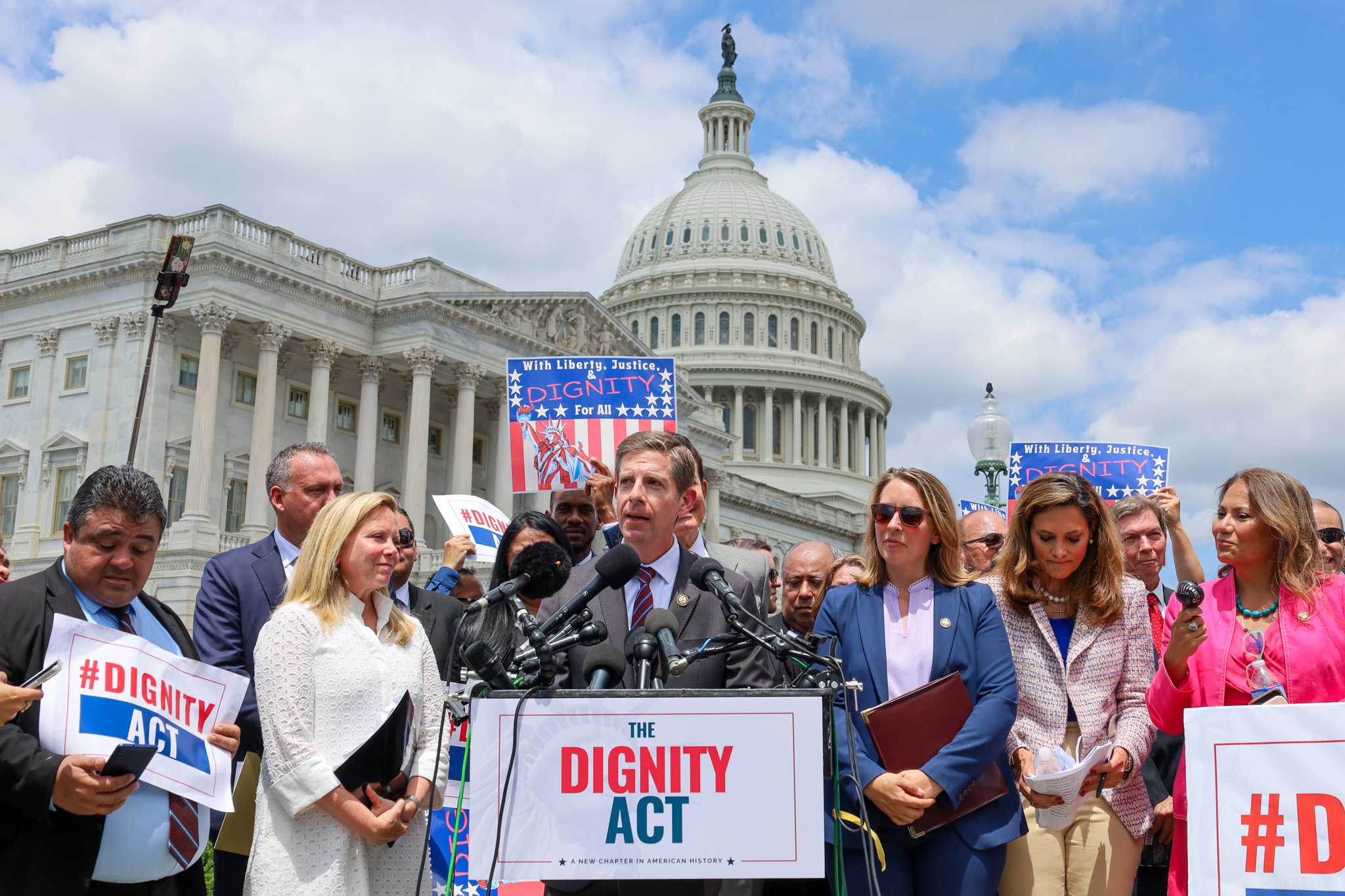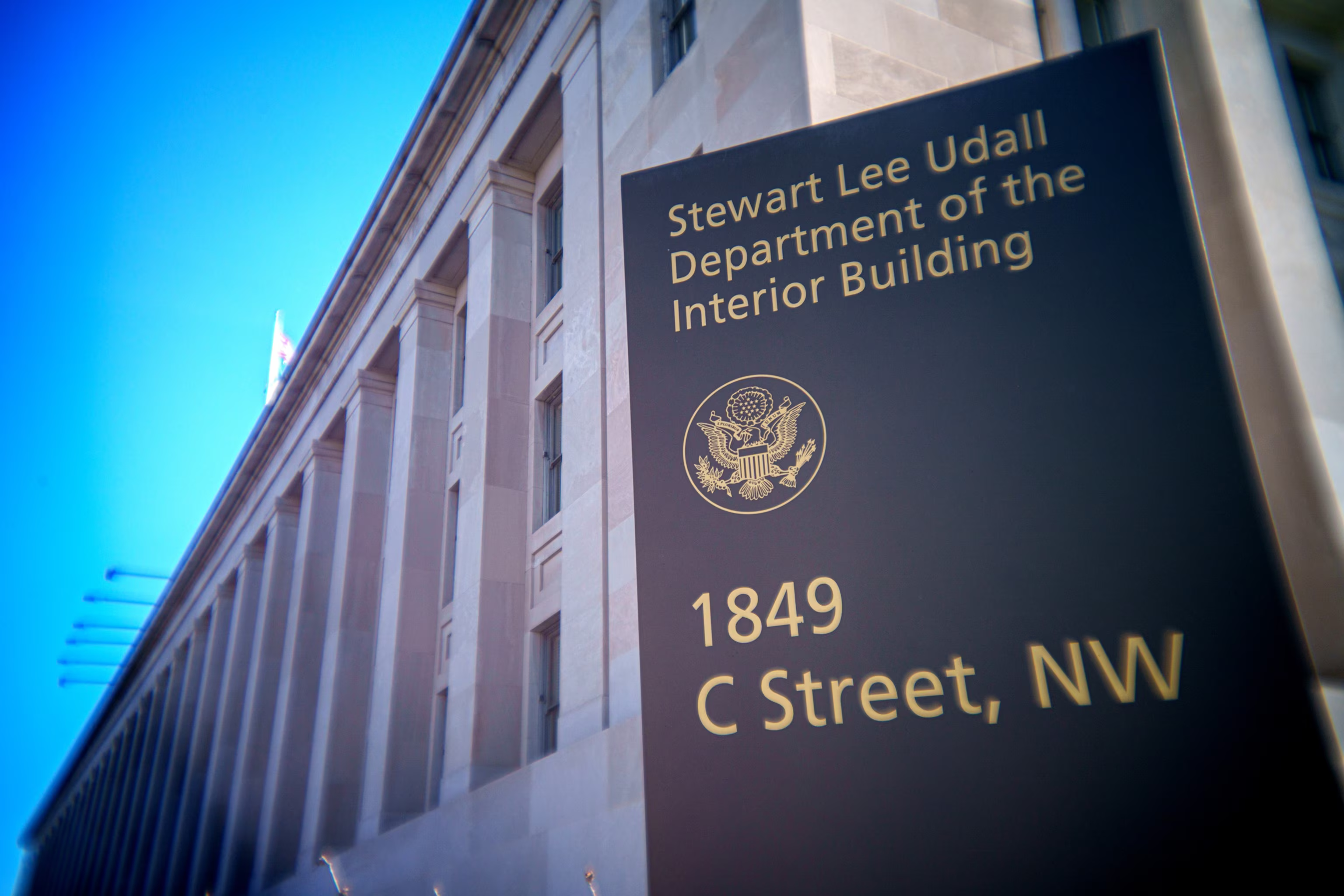Project Overview
On July 15, 2025, Representatives Maria Elvira Salazar (R-FL) and Veronica Escobar (D-TX) introduced the Dignity Act of 2025, a comprehensive bipartisan immigration reform bill. The proposal seeks to regularize the status of undocumented immigrants who have resided in the United States for more than five years, provided they meet specific requirements.
Dignity Program Structure
The bill allows undocumented immigrants present in the country since before December 31, 2020, to apply for legal status through the “Dignity Program.” Applicants must:
- Have no criminal background
- Pay a restitution fee of $7,000 over seven years
- Report for interviews with the Department of Homeland Security every two years
- Work or study for at least four of the seven years in the program
- Pay owed taxes and file income declarations
Participants receive work authorization and protection from deportation but do not have access to federal benefits. The status can be renewed indefinitely every seven years, however, it does not provide a direct path to American citizenship.
Specific Provisions for Dreamers
The bill establishes differentiated treatment for “dreamers” – immigrants who arrived in the country as children. This group can apply for both legal status and American citizenship, representing an important distinction from other program beneficiaries.
Asylum System Reforms
The legislation proposes the construction of at least three “humanitarian campuses” on the southern border, designed for processing asylum applications. The system provides for:
- 72-hour rest period for applicants
- Credible fear interviews within 15 days
- Process completion within 45 days
- Two-officer approach for initial evaluation
Border Security Measures
The bill includes provisions for strengthening security on the Mexico border, funded by resources collected through fees paid by program participants. The proposal also provides for national implementation of the E-Verify system for work eligibility verification.
Visa System Reforms
The legislation addresses the problem of long visa waiting lines by establishing:
- Maximum 10-year limit for all visa categories
- Increase in per-country quotas from 7% to 15%
- Creation of new visa categories for family visits
Funding and Economic Aspects
The program operates with self-financing, using fees paid by participants to fund border security improvements and training programs for American workers. The bill establishes a $70 billion fund for professional training initiatives.
Political Context and Challenges
The proposal’s introduction coincides with the period of intensified deportation operations under the Trump administration. The last major immigration reform in the United States occurred in 1986, during the Reagan administration, which granted a path to citizenship for millions of immigrants.
The bill will face significant challenges in Congress, controlled by the Republican Party, which historically demonstrates skepticism toward comprehensive immigration reforms. The absence of a direct path to citizenship may generate resistance among immigrant rights advocacy groups.
Initial Bipartisan Support
The proposal already has support from more than 20 House of Representatives members from both parties, indicating potential for serious legislative discussion. The initiative’s success will depend on the ability to build consensus in a traditionally polarized political environment on immigration issues.
The Dignity Act of 2025 represents a structured attempt to address long-standing immigration issues in the United States, combining elements of regularization, border security, and reforms to the immigrant processing system. Its approval would depend on complex negotiations between different political and interest groups.
Contact us today through our WhatsApp to discover how we can help you achieve success in the United States. Together, we can turn dreams into reality.
Information source: foxnews.com | americanimmigrationcouncil.org | cbsnews.com | g1.globo.com



